JSON Web Token Profile in ZITADEL
This is a guide on how to secure your API using JSON Web Token (JWT) profile (recommended).
Register the API in ZITADEL and generate private and public keys
- Go to your project and click on the New button as shown below.
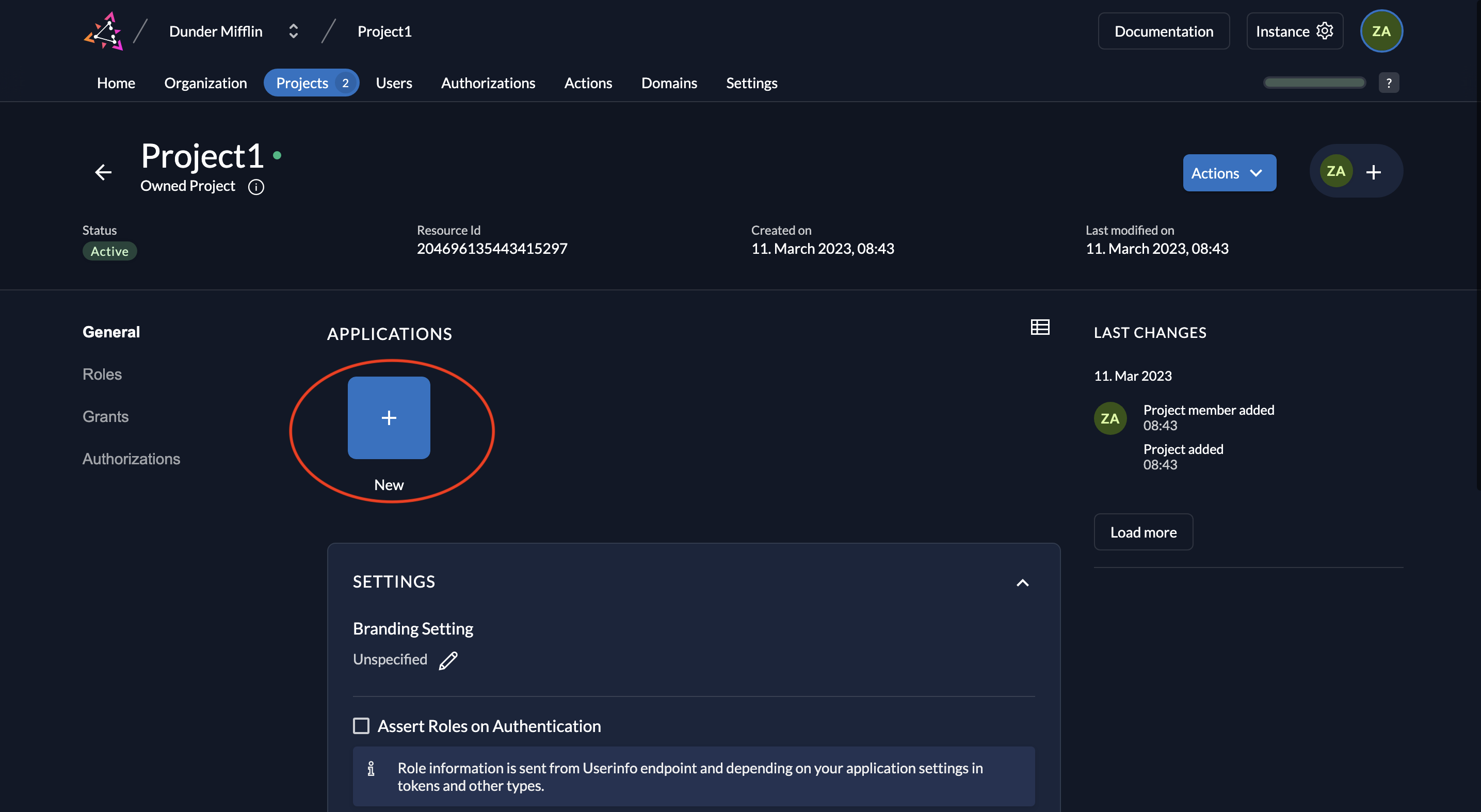
- Give a name to your application (Test API is the name given below) and select type API.
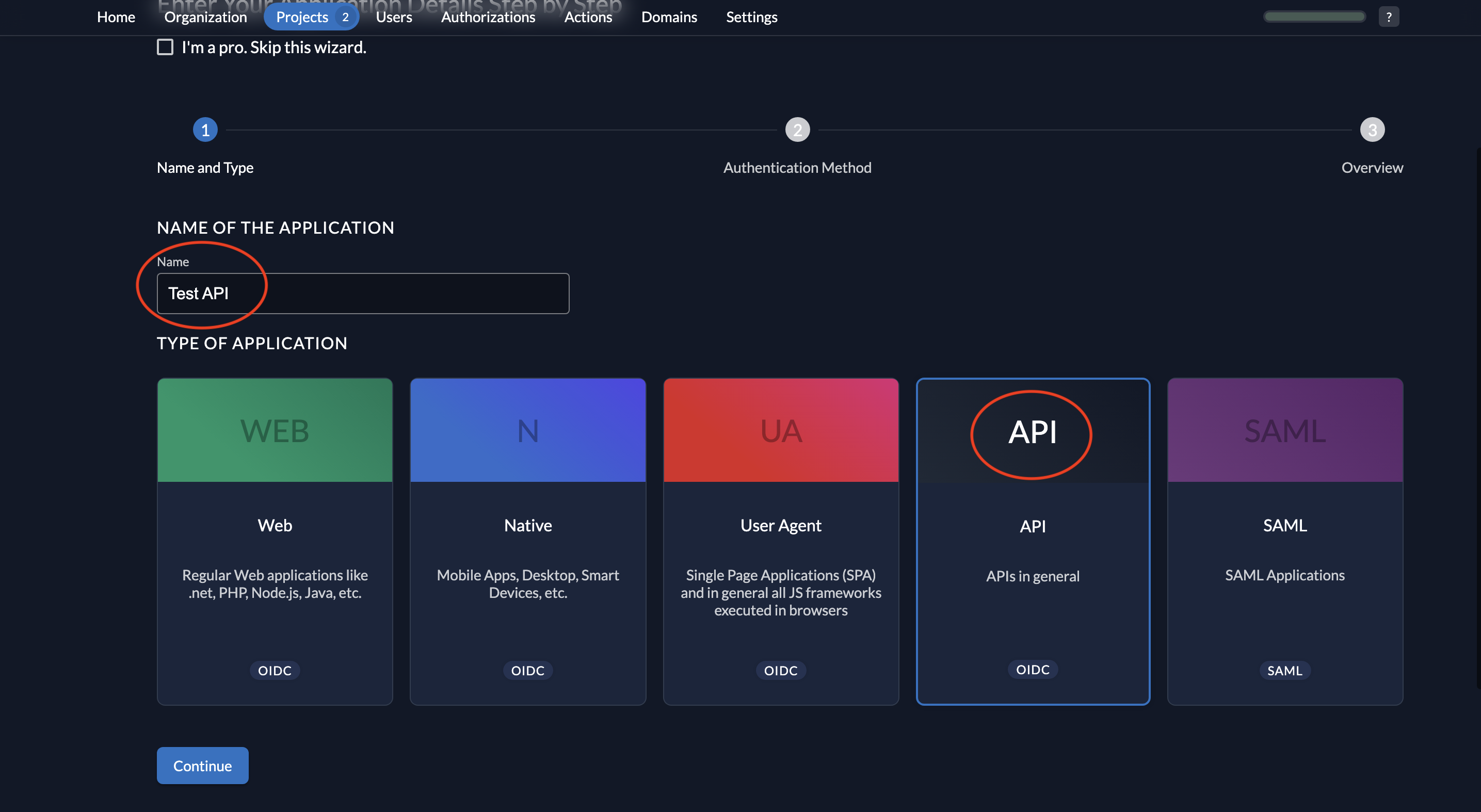
- Select JWT as the authentication method and click Continue.
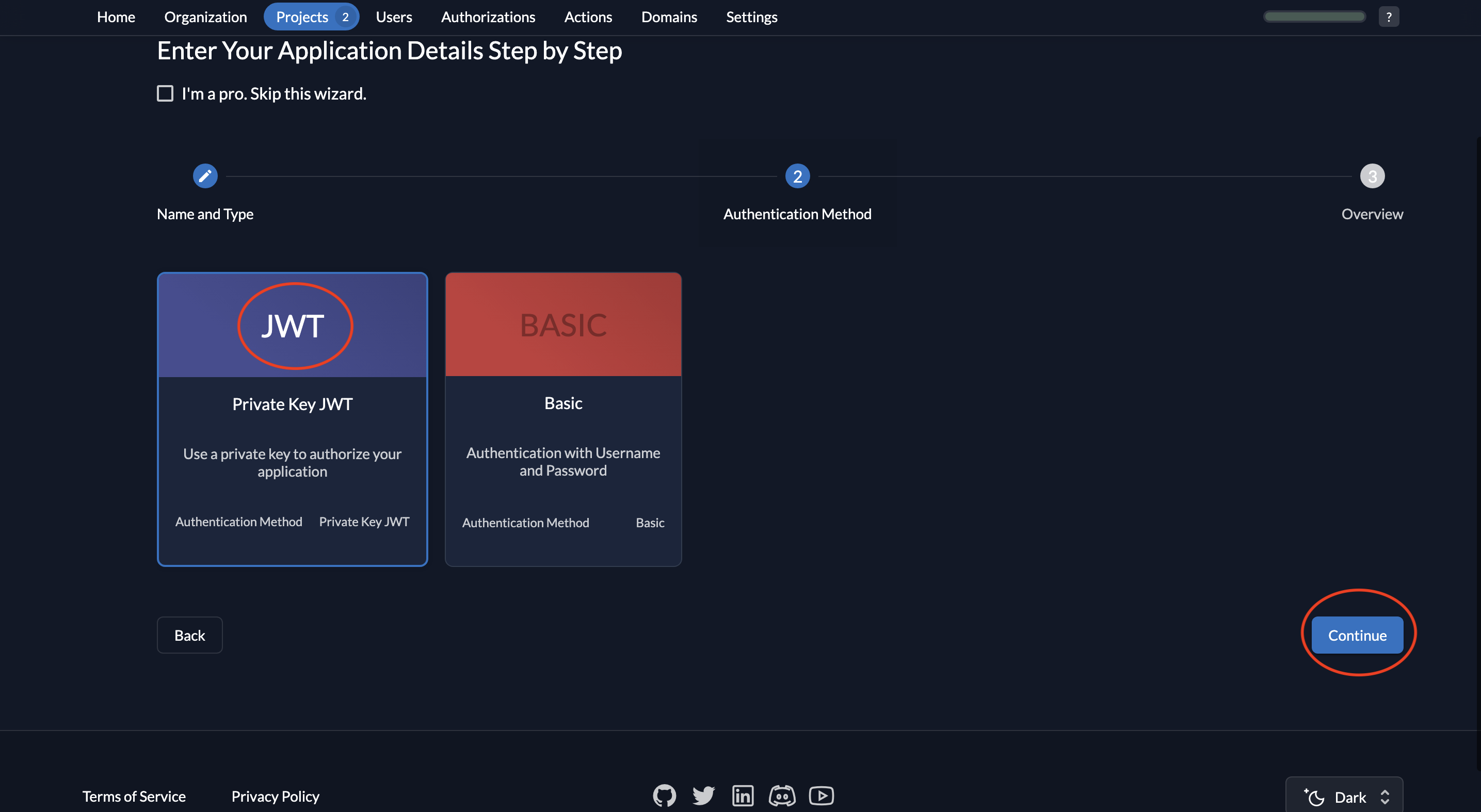
- Now review your configuration and click Create.
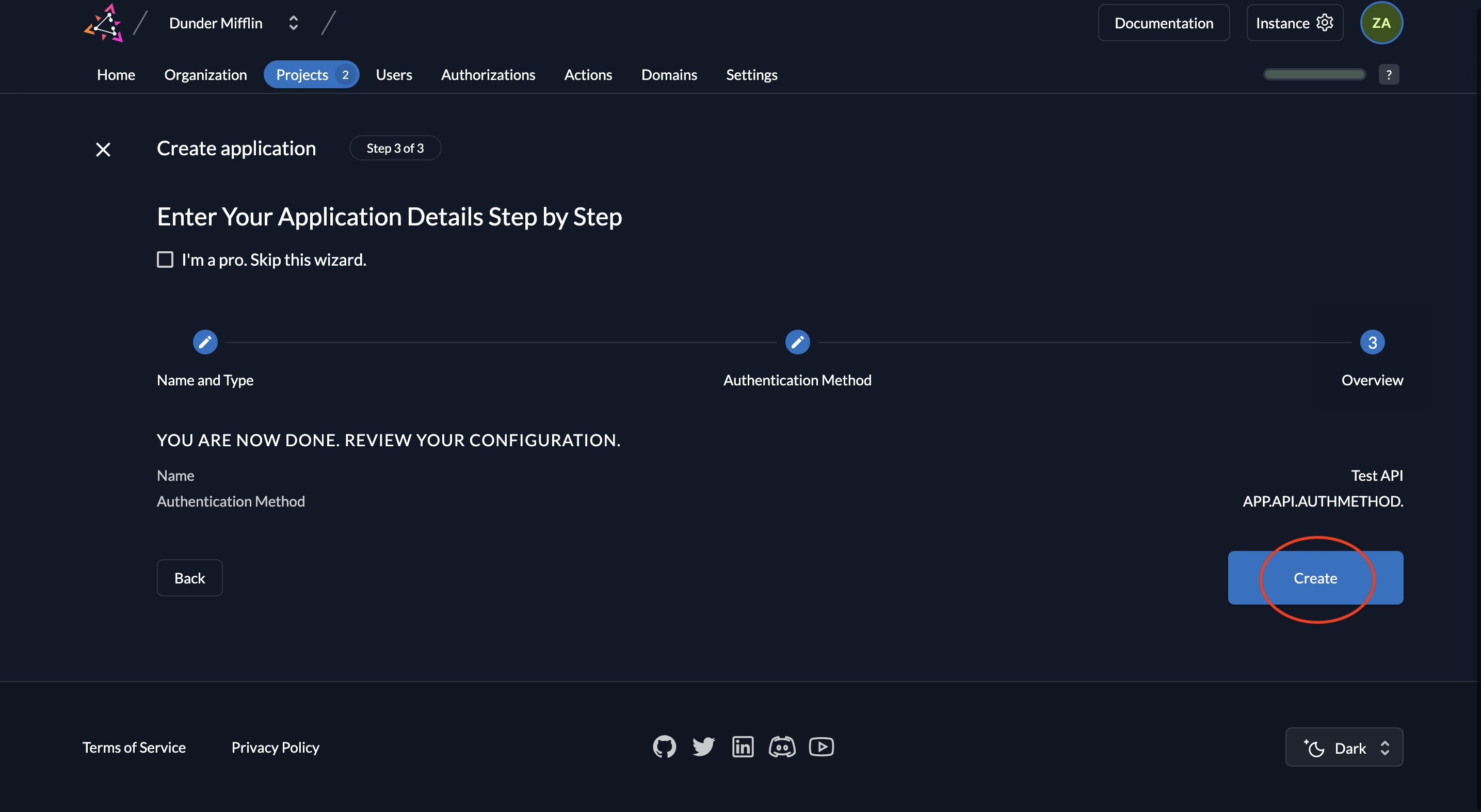
- You will now see the API’s Client ID. You will not see a client secret because we are using a private JWT key.
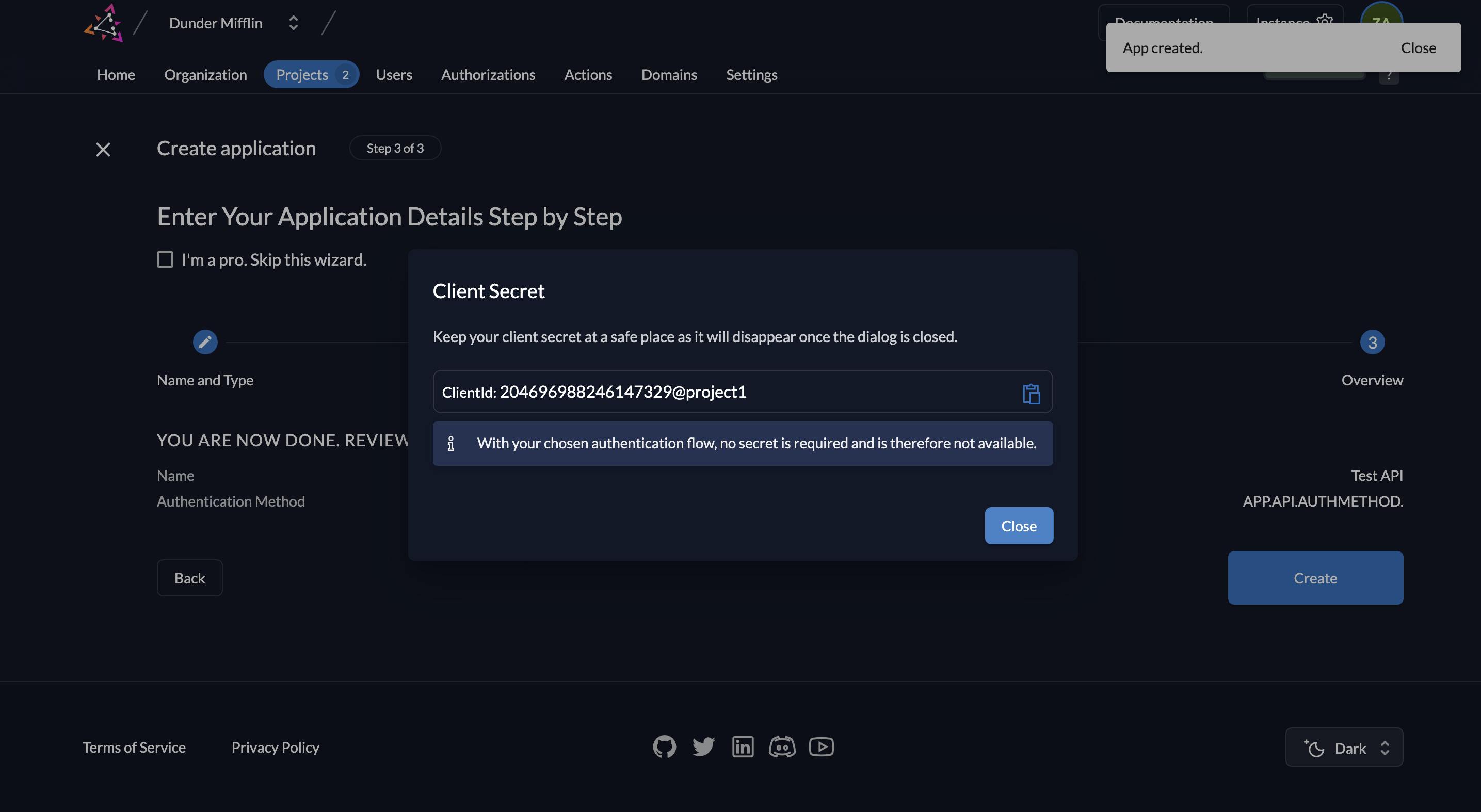
- Next, we must create the key pairs. Click on New.
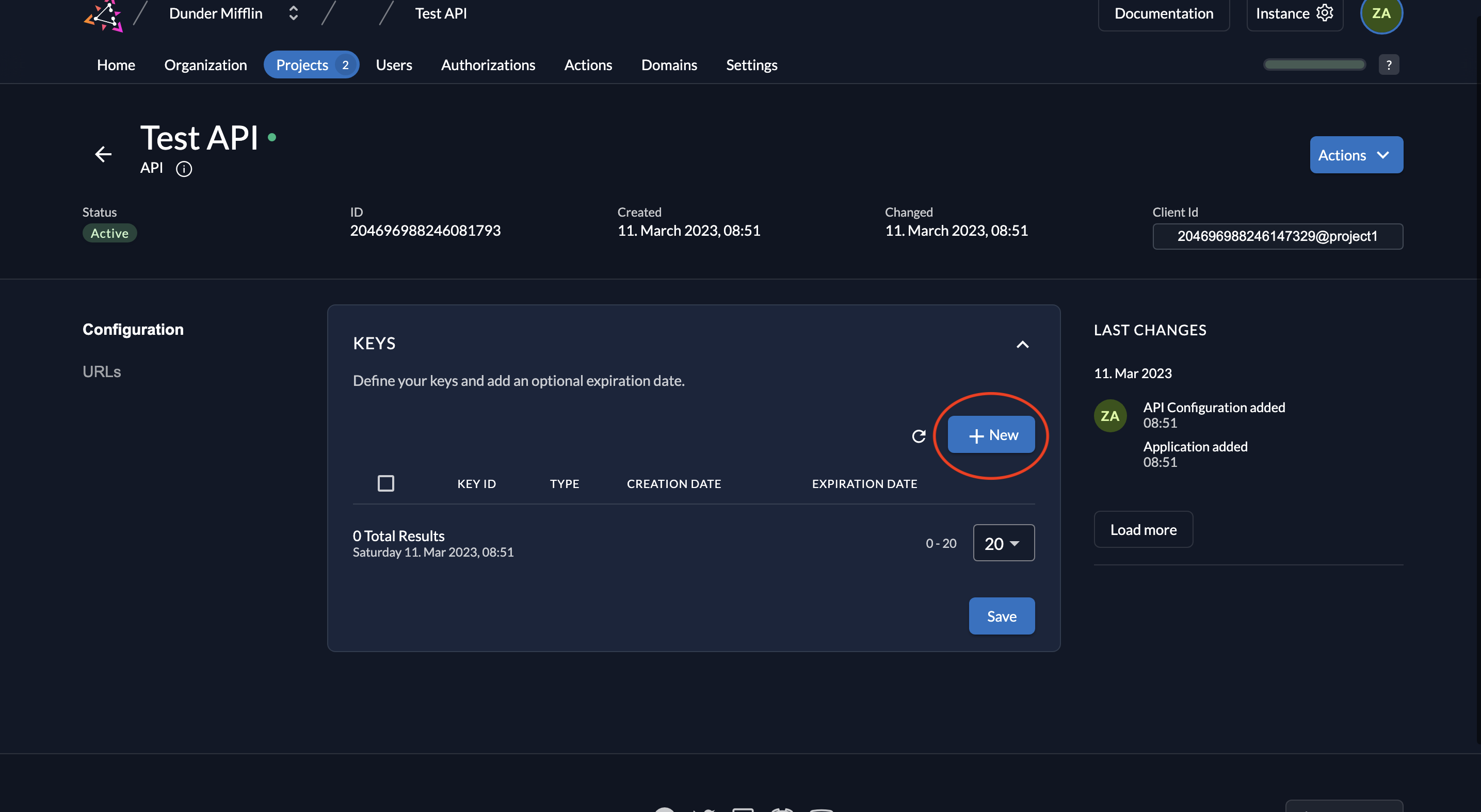
- Select JSON as the type of key. You can also set an expiration time for the key or leave it empty. Click on Add.
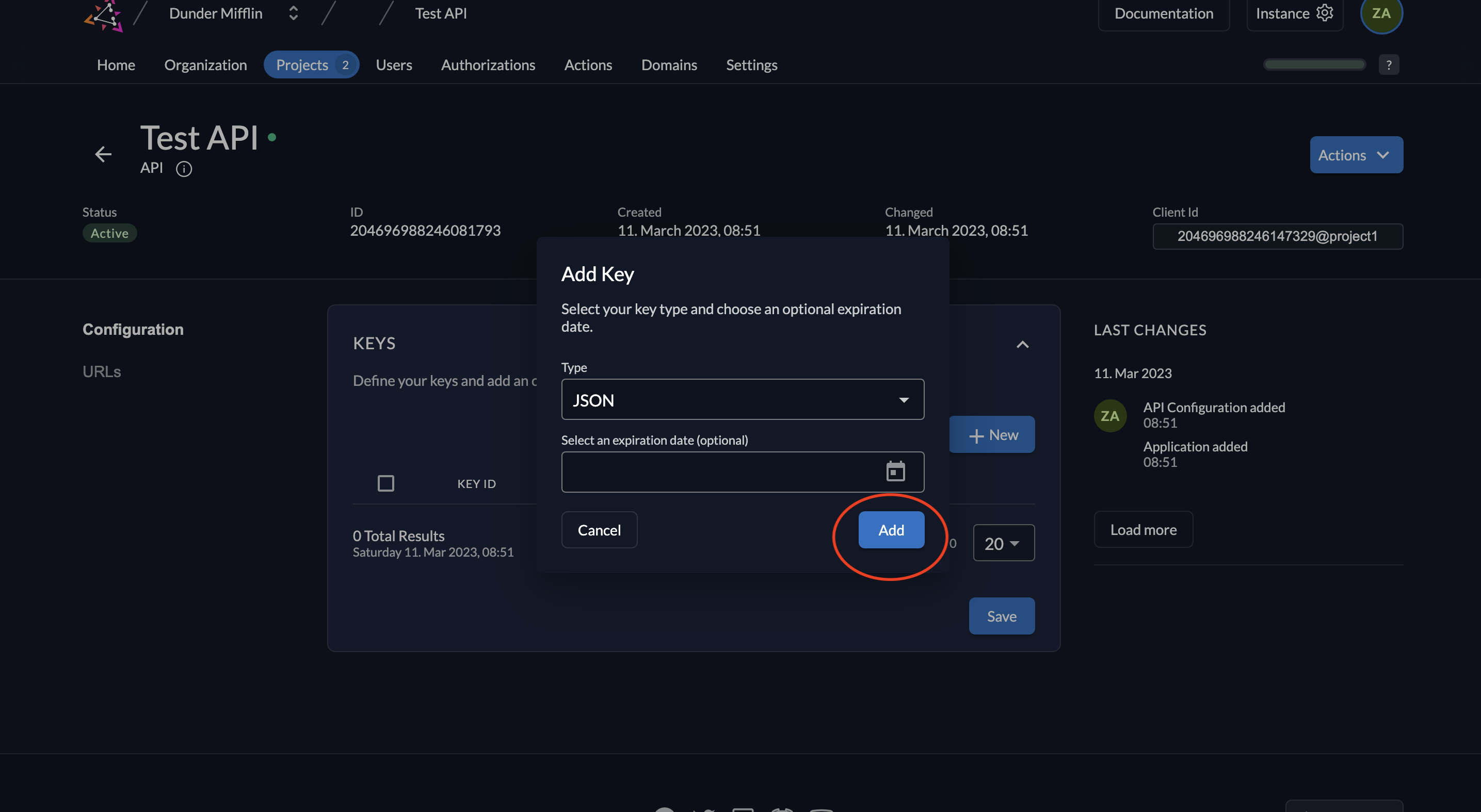
- Download the created key by clicking the Download button and then click Close.
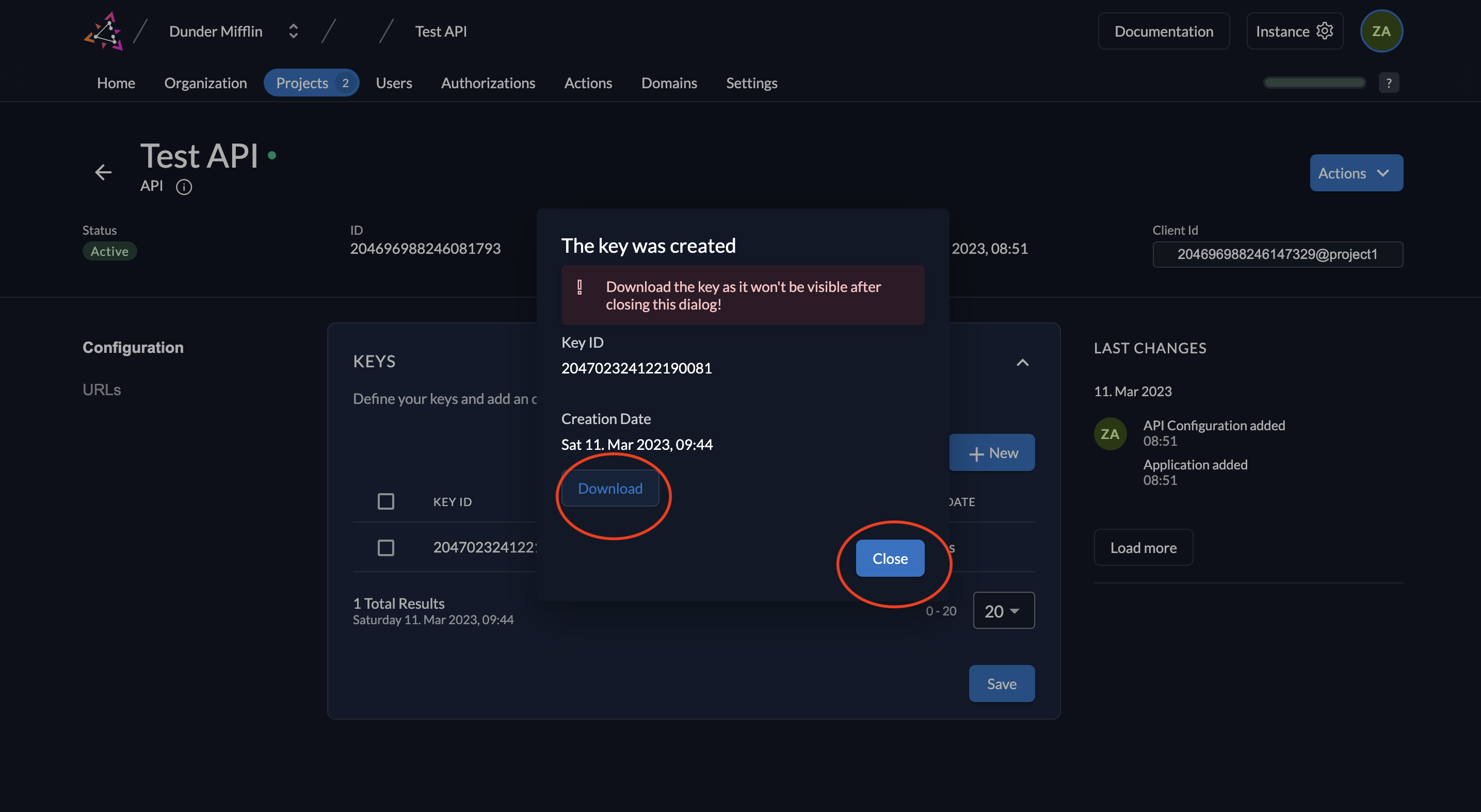
- The key will be downloaded.
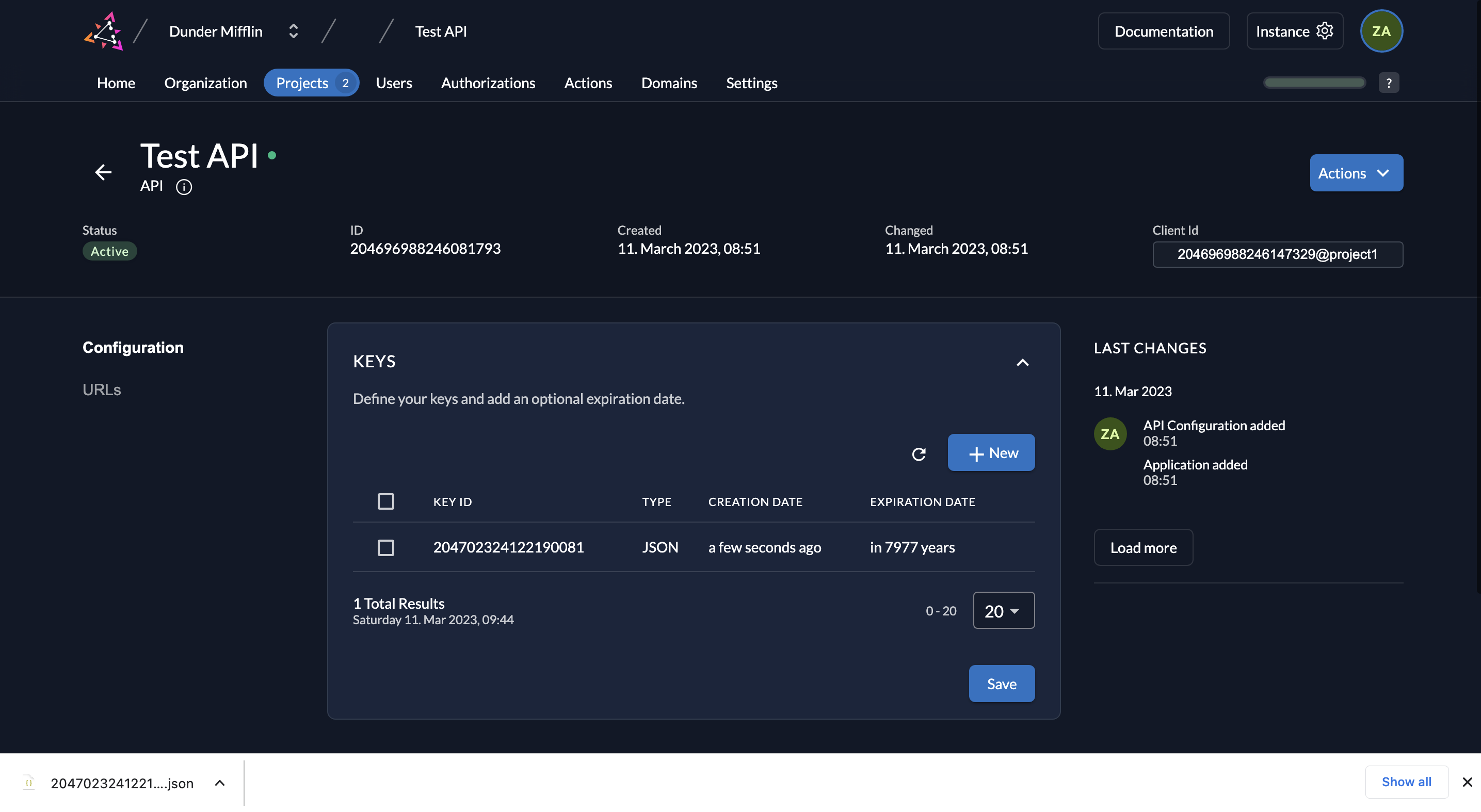
- When you click on URLs on the left, you will see the relevant OIDC URLs. Note down the issuer URL, token_endpoint and introspection_endpoint.
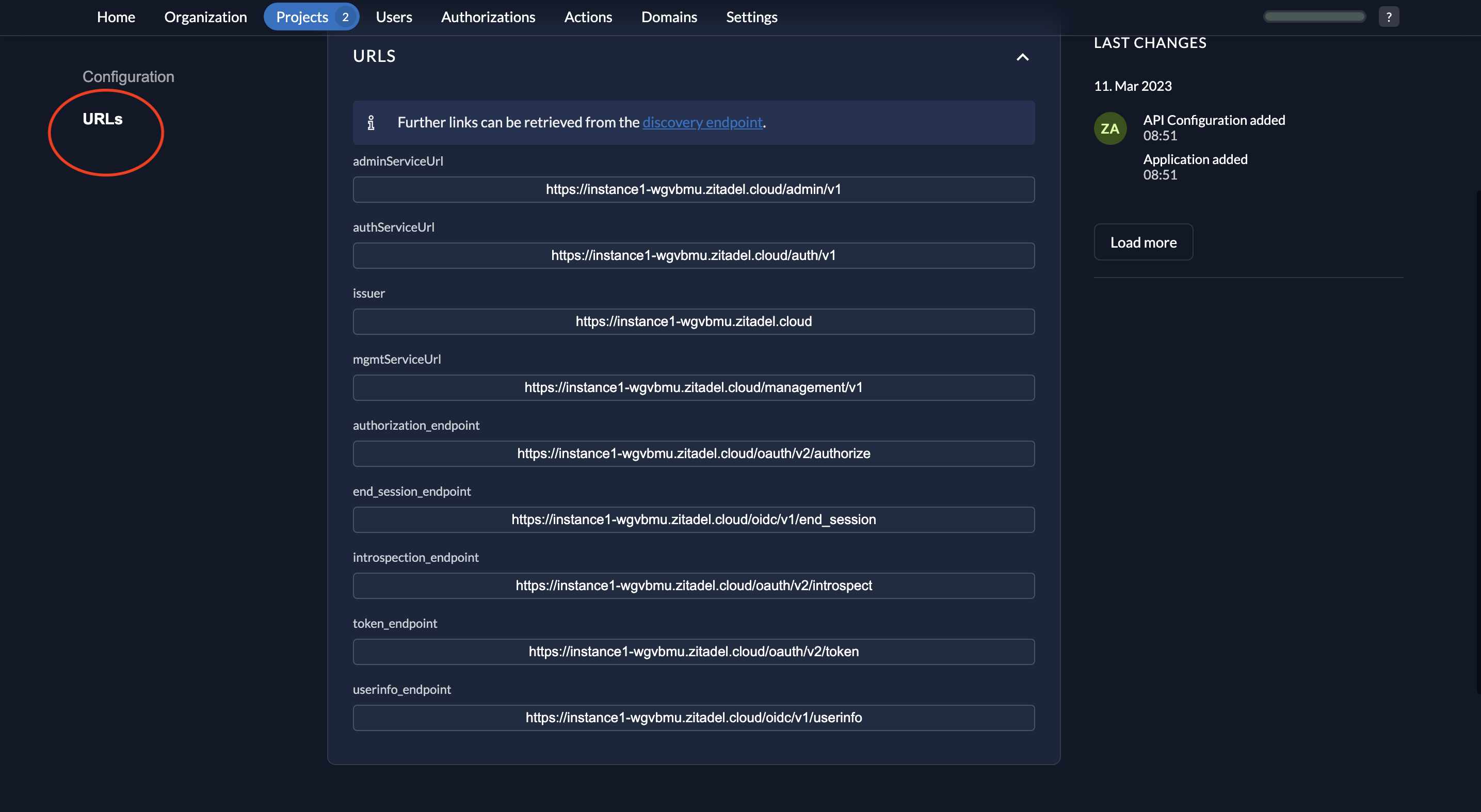
- The key that you downloaded will be of the following format.
{
"type":"application",
"keyId":"<YOUR_KEY_ID>",
"key":"-----BEGIN RSA PRIVATE KEY-----\<YOUR_PRIVATE_KEY>\n-----END RSA PRIVATE KEY-----\n",
"appId":"<YOUR_APP_ID>",
"clientId":"<YOUR_CLIENT_ID>"
}
- Also note down the Resource ID of your project.
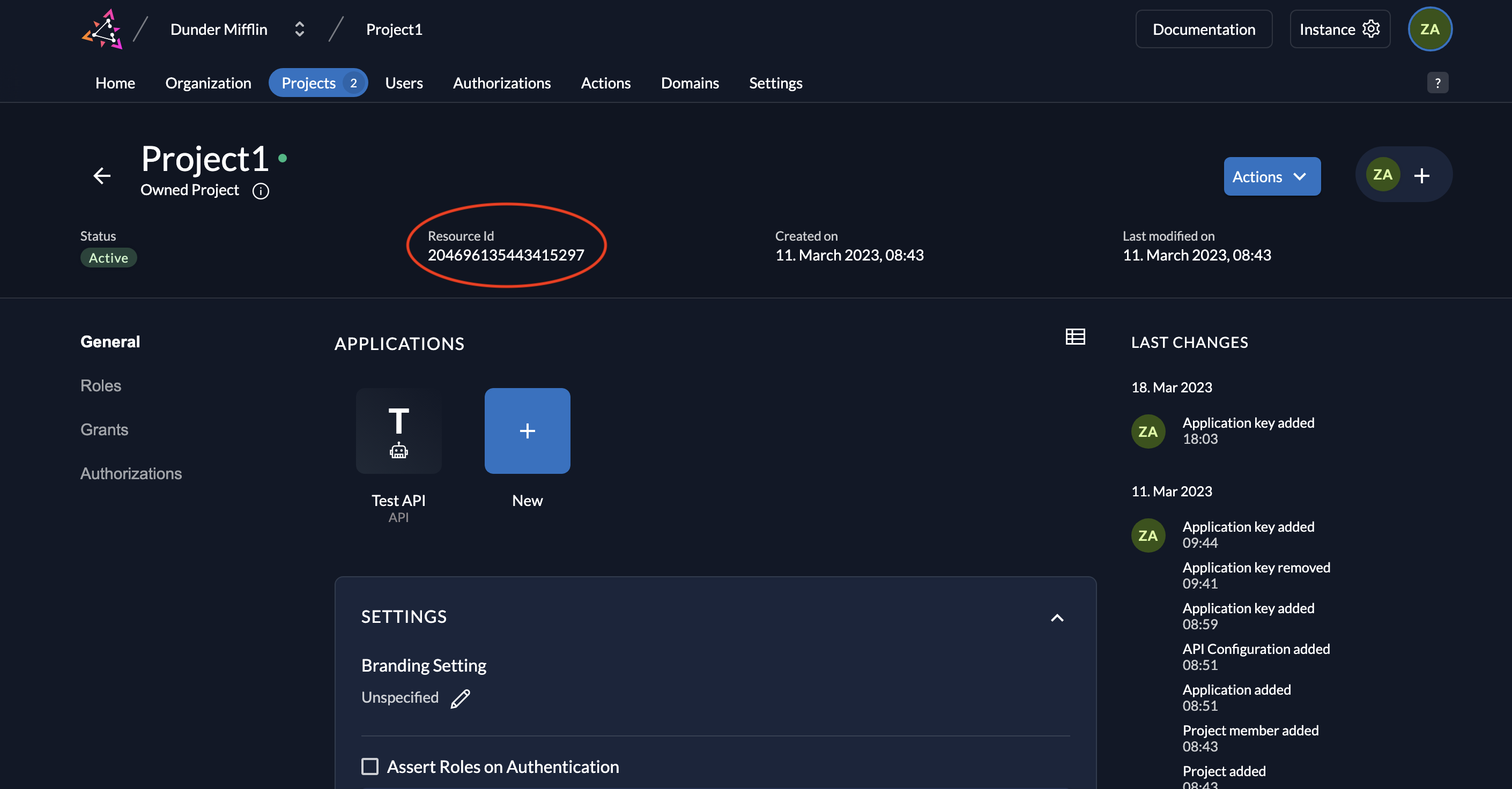
Token introspection
You must send a client_assertion as a JWT signed with the API’s private key for ZITADEL to validate the signature against the registered public key.
Request parameters:
| Parameter | Description |
|---|---|
client_assertion | When using JWT profile for token or introspection endpoints, you must provide a JWT as an assertion generated with the structure shown below and signed with the downloaded key. |
client_assertion_type | urn:ietf:params:oauth:client-assertion-type:jwt-bearer |
You must create your client assertion JWT with the following format:
Header:
{
"alg": "RS256",
"kid": "81693565968962154" (keyId from your key file)
}
Payload:
{
"iss": "78366401571920522@acme", (clientId from your key file)
"sub": "78366401571920522@acme", (clientId from your key file)
"aud": "https://{your_domain}", (your ZITADEL domain/issuer URL)
"exp": 1605183582, (Unix timestamp of the expiry)
"iat": 1605179982 (Unix timestamp of the creation signing time of the JWT, MUST NOT be older than 1h)
}
Create the JSON Web Token with the above header and payload, and sign it with the private key in your key file. You can do this programmatically or use tools like https://github.com/zitadel/zitadel-tools and https://dinochiesa.github.io/jwt/.
The request from the API to the introspection endpoint should be in the following format:
curl --request POST \
--url {your_domain}/oauth/v2/introspect \
--header 'Content-Type: application/x-www-form-urlencoded' \
--data client_assertion_type=urn:ietf:params:oauth:client-assertion-type:jwt-bearer \
--data client_assertion=eyJhbGciOiJSUzI1Ni... \
--data token=VjVxyCZmRmWYqd3_F5db9Pb9mHR
Here's an example of how this is done in Python code:
def introspect_token(self, token_string):
#Create JWT for client assertion
payload = {
"iss": API_PRIVATE_KEY_FILE["client_id"],
"sub": API_PRIVATE_KEY_FILE["client_id"],
"aud": ZITADEL_DOMAIN,
"exp": int(time.time()) + 60 * 60, # Expires in 1 hour
"iat": int(time.time())
}
headers = {
"alg": "RS256",
"kid": API_PRIVATE_KEY_FILE["key_id"]
}
jwt_token = jwt.encode(payload, API_PRIVATE_KEY_FILE["private_key"], algorithm="RS256", headers=headers)
#Send introspection request
headers = {"Content-Type": "application/x-www-form-urlencoded"}
data = {
"client_assertion_type": "urn:ietf:params:oauth:client-assertion-type:jwt-bearer",
"client_assertion": jwt_token,
"token": token_string
}
response = requests.post(ZITADEL_INTROSPECTION_URL, headers=headers, data=data)
response.raise_for_status()
token_data = response.json()
print(f"Token data from introspection: {token_data}")
return token_data
Introspection response
Upon successful introspection, regardless of the token type or introspection method, a response with the boolean active is returned, indicating if the provided token is active and if the requesting client is part of the token audience. If active is true, further information will be provided:
| Property | Description |
|---|---|
aud | The audience of the token |
client_id | The client_id of the application the token was issued to |
exp | Time the token expires (as unix time) |
iat | Time the token was issued at (as unix time) |
iss | Issuer of the token |
jti | Unique id of the token |
nbf | Time the token must not be used before (as unix time) |
scope | Space delimited list of scopes granted to the token |
token_type | Type of the inspected token. Value is always Bearer |
username | ZITADEL's login name of the user. Consists of username@primarydomain |
Depending on the granted scopes, additional information about the authorized user is provided.
If the authorization fails, an HTTP 401 with invalid_client will be returned.
In summary, the introspection endpoint plays a crucial role in validating access tokens, either opaque or JWT, ensuring that they are not revoked.
Follow this tutorial to learn how to register an API application using JWT Profile with ZITADEL and test it.